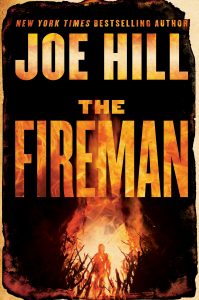
End of Watch by Stephen King
Scribner (June 7, 2016)
448 pages; $18.00 hardcover; $14.99 e-book
Reviewed by Bev Vincent
 Shortly after the publication of Mr. Mercedes, Stephen King announced that the book was the first in a trilogy that would be connected by the City Center Massacre (in which a psycho named Brady Hartsfield stole a Mercedes and plowed into a crowd of people who were waiting in line at a job fair in a struggling Mid-western city).
Shortly after the publication of Mr. Mercedes, Stephen King announced that the book was the first in a trilogy that would be connected by the City Center Massacre (in which a psycho named Brady Hartsfield stole a Mercedes and plowed into a crowd of people who were waiting in line at a job fair in a struggling Mid-western city).
Hartsfield got away with that crime but was—during the commission of an even more audacious and nefarious scheme—eventually brought to justice by a rag-tag group led by retired police detective Bill Hodges. Hartsfield was effectively taken off the playing board at the conclusion of Mr. Mercedes but, at the end of the second book, Finders Keepers, King hinted strongly that this villain would be back, front and center, for the finale. He also suggested that the third book would be closer to a traditional King novel, by which I mean it might have supernatural elements.
The phrase “End of Watch” will be familiar to anyone with more than a passing knowledge of police dramas. In one context, it refers to the day when a cop retires. On another, more ominous level, it refers to a cop killed in the line of duty. Bill Hodges has already experienced the first usage—the question the title of the third book poses is whether he will experience the other.Continue Reading






 There’s been so much news lately, I hardly know where to begin. What merits top billing? Let’s start with that trailer for It. First we had
There’s been so much news lately, I hardly know where to begin. What merits top billing? Let’s start with that trailer for It. First we had 


 Shortly after the publication of Mr. Mercedes, Stephen King announced that the book was the first in a trilogy that would be connected by the City Center Massacre (in which a psycho named Brady Hartsfield stole a Mercedes and plowed into a crowd of people who were waiting in line at a job fair in a struggling Mid-western city).
Shortly after the publication of Mr. Mercedes, Stephen King announced that the book was the first in a trilogy that would be connected by the City Center Massacre (in which a psycho named Brady Hartsfield stole a Mercedes and plowed into a crowd of people who were waiting in line at a job fair in a struggling Mid-western city). The Fireman by Joe Hill
The Fireman by Joe Hill
